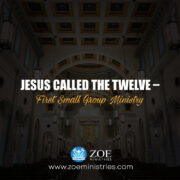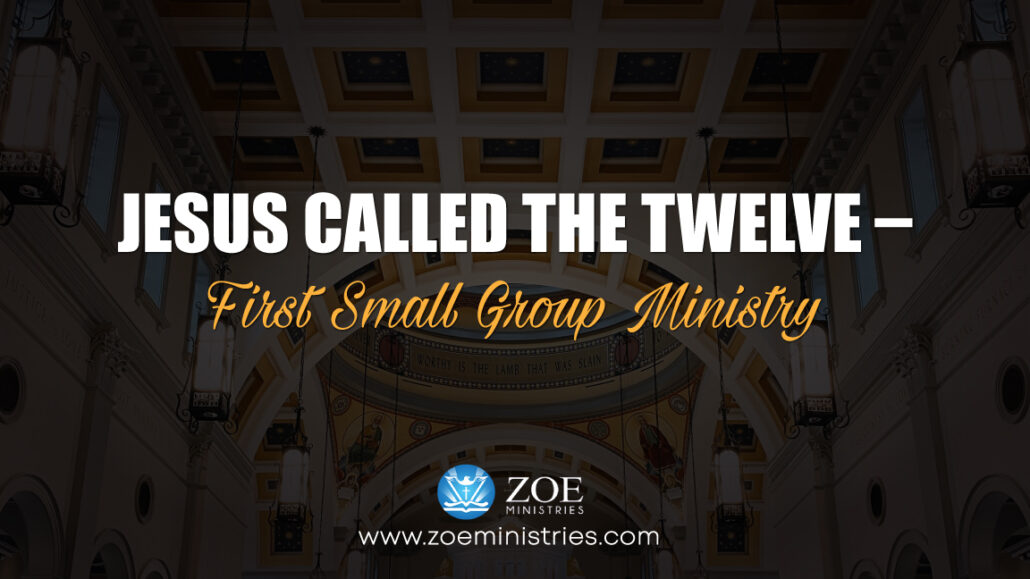How Christ Changed Peter
A specific disciple whose life we can look at is the apostle Peter, who famously walked with Jesus on water. He is the perfect depiction of a three-dimensional human being who struggles with his own strengths and weaknesses. We see this conflict in him unfold when he encountered Jesus walking outside of their boat:
28 Peter answered him, “Lord, if it is you, command me to come to you on the water.” 29 He said, “Come.” So Peter got out of the boat, started walking on the water, and came toward Jesus. 30 But when he noticed the strong wind, he became frightened, and beginning to sink, he cried out, “Lord, save me!” (Matthew 14:28-30).
Jesus Was Patient With Peter
In the span of three verses, we see how bold, impulsive, presumptuous, and fearful Peter could be. Remember when Peter sliced off the high priests’ servant’s ear. Peter fought for Jesus when they were arresting Jesus.
Nevertheless, Jesus had to tell him to put his sword away. Peter’s interference is actually getting in the way of the will of God (Jn. 18:10). Every situation became a teaching moment. There was also an instance when Jesus started to prophesy about his future suffering and death. Peter rebuked Jesus.
Can you imagine that? Jesus sternly rebuked Peter in return. Jesus said he was a stumbling block and that he had no concern for the things of God (Matt. 16:21-23).
In the Garden of Gethsemane, he warned his disciples that all of them would stumble and end up scattered. Peter, in all his sincerity, said that everyone else might stumble but not him. Yet Jesus continually warned him that. In fact, on that very day before the rooster crows, Peter would have denied him not just once but three times. Still, Peter could not reconcile himself with this and refused to accept it. Eventually, what Jesus said came to pass, and Peter was left hurt and in disbelief over what he had done (Lk. 22:54-62).
Yet it was through this that he came upon his turning point. He understood the gravity of what he had done. When he came face to face with Jesus for the first time after the resurrection, Jesus asked him three times if Peter truly did love him. One for every time Peter betrayed him.
Understandably, he was hurt that Jesus asked him thrice. Yet, when Jesus responded affirmatively and told Peter to feed and tend to his lambs, Peter decided to hinge his entire life doing exactly that. He went on to continue serving the cause of Christ after the ascension of Jesus to heaven. Consequently, Peter set an example of what it meant to be a good servant-leader.
Leaders Must Be Patient Like Jesus Was
Leaders need to remember that Peter had to go through all these challenges to come out as the man he ended up being after the Pentecost. The change wasn’t immediate, and he made stupid decisions, but Jesus still restored him to the group.
In the same way, we as leaders must extend the same amount of patience and grace to our small group members. There will be times that the people in our small group will mess up as Peter did.
In a small group, we establish friendships with others. Relationships are forged. As in any other relationship, conflicts and hurt can occur.
We are all works in progress
There will be moments when we wonder why it takes such a long time for some people to change. Why are people so proud or stubborn? Like the Twelve, we were still undergoing sanctification and transformation.
They were still immature even after spending every day with Jesus for three years. Therefore, we shouldn’t be pushy with the members of our small groups.
We can sometimes find ourselves struggling with leadership and thinking of ourselves as unworthy vessels of Christ. But we can look to the twelve disciples. Remember, we’re not really that different from them.
The fact that Jesus chose ordinary, broken, flawed people to be his chosen twelve shows us that no matter how difficult some disciples are, they are still working in progress.
As long as someone is willing to stay in a small group and wants to change, we should do our utmost best to lead them like how Jesus led the disciples. It was through the small group that Jesus largely taught and modeled what it meant to follow God, and it was through this close contact and interaction that the disciples ultimately changed.
Jesus Cared About His Small Group
This is because Jesus didn’t view his small group as a mere organization model established to attain a goal. He didn’t do it to fulfill all righteousness. He cared more about the relationships being built and the spiritual foundations being established. More than anything else, the trust, love, and respect built that the disciples felt for him transformed their lives.
Like the rest of us, Jesus could have chosen to stay neutral and detached, establishing his role in the lives of the disciples simply as a leader and nothing more. Yet, he allowed himself to be vulnerable to his disciples, allowing himself to be anguished and pained before them and asking for their support when he knew that the time for his arrest and crucifixion has come (Matt. 26:36-46).
Foundations and Fellowship
Some of us don’t allow room for vulnerability in our relationships with the people in our small group because we want to be perceived a certain way. For certain people, it is their form of establishing their leadership over others, acting as if they’re too busy for small groups because they have so much to do in general ministry. However, this was not the model Jesus gave us, and this goes against how he designed and functioned in small groups. He allowed himself to move in a small group setting before moving into his more public ministry. And at the end of every big gathering held, he returned to mentoring his disciples and processing things with them after.
Jesus built the very first small group by building the important foundations in their lives. He cared for them, he shared his lives with them, he served them and served with them, then he went on to empower them to make disciples even after he had gone. And it was because of this, what began as a small group of twelve turned into the billions of Christians that we have today.
Your weekly dose of prophetic wisdom and anointing awaits you. Join our LIVE Conference Call!
1) Call 515-604-9266
2) Go to startmeeting.com, and use the login: BishopJordan









